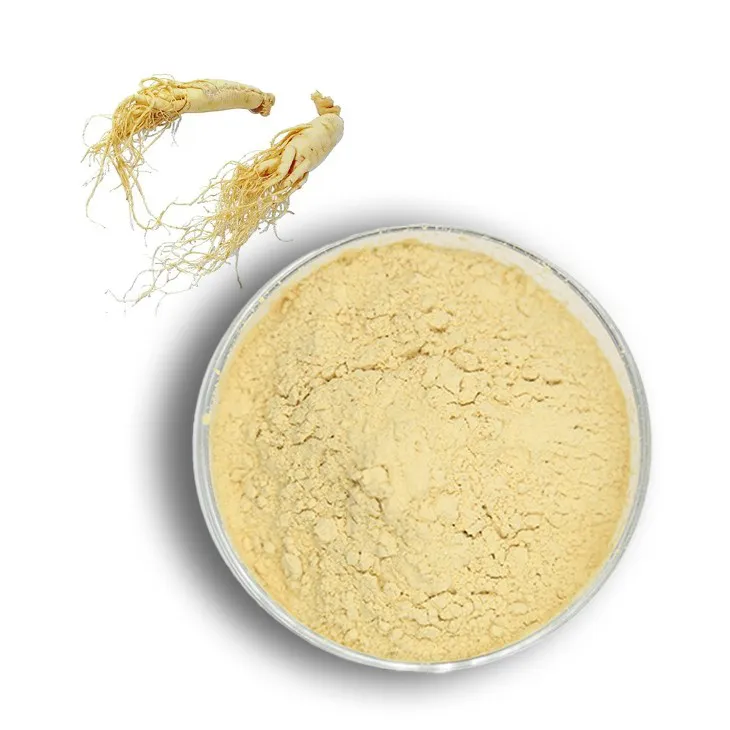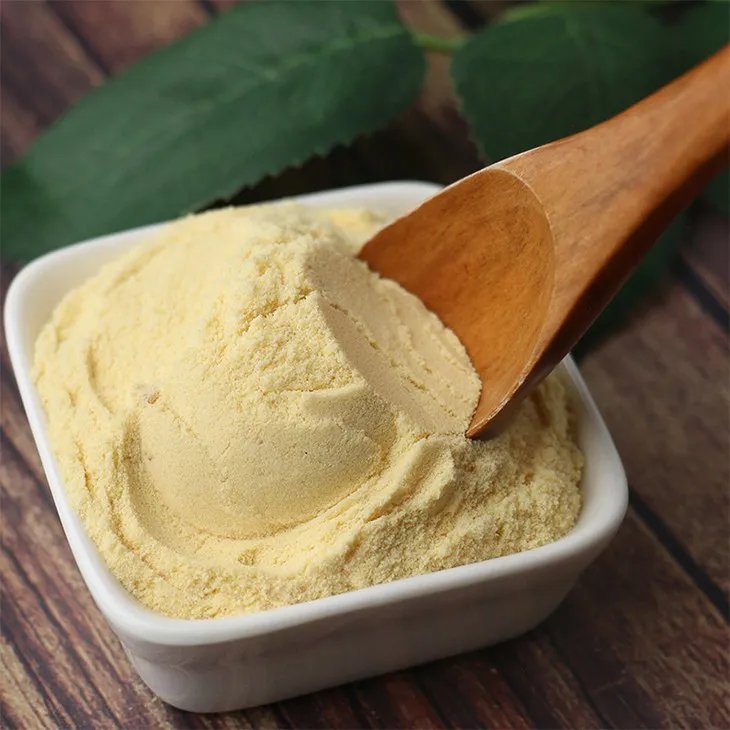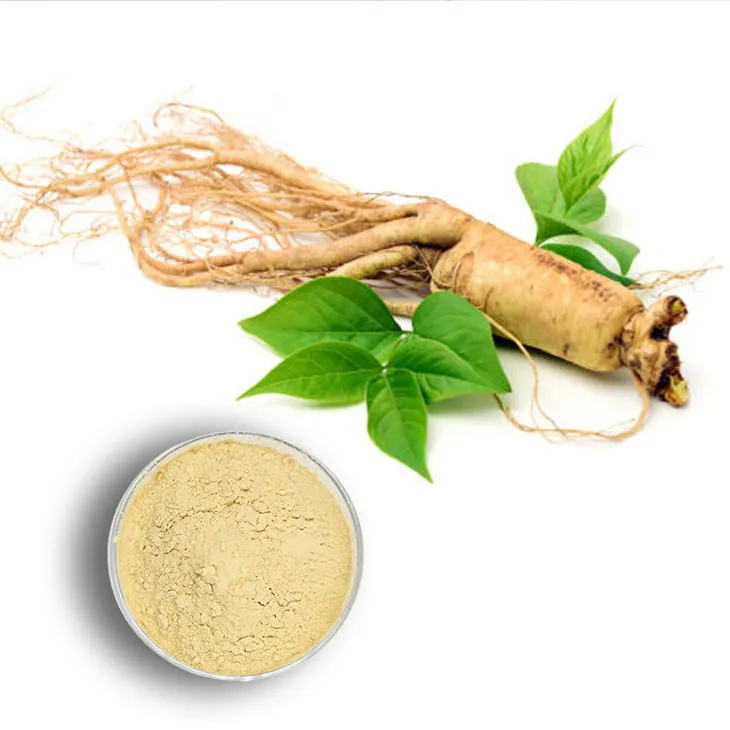- 0086-571-85302990
- sales@greenskybio.com
Ginseng Root Extract: Benefits, Uses and Possible Side Effects
2024-11-13

I. Introduction
Ginseng Root Extract has been a subject of fascination for centuries, deeply rooted in traditional medicine systems around the world. It has gained significant popularity in modern times as well, due to its purported wide - ranging health benefits. This extract is derived from the root of the ginseng plant, which belongs to the genus Panax. There are different species of ginseng, such as Asian ginseng (Panax ginseng) and American ginseng (Panax quinquefolius), each with its own characteristics and potential health - promoting properties. Understanding the benefits, uses, and possible side effects of Ginseng Root Extract is crucial for those interested in incorporating it into their health regimens or exploring its other applications.

II. Benefits of Ginseng Root Extract
A. Boosting Energy and Reducing Fatigue
One of the most well - known benefits of ginseng root extract is its ability to boost energy levels and combat fatigue. It contains active compounds such as ginsenosides, which are thought to play a role in enhancing the body's energy production. Studies have shown that ginseng can improve physical performance and reduce feelings of tiredness, making it a popular supplement among athletes and those with a busy lifestyle. For example, in a controlled trial, participants who took ginseng root extract reported increased stamina during exercise compared to those who did not.
B. Enhancing Cognitive Function
Ginseng root extract may also have positive effects on cognitive function. It has been associated with improved memory, concentration, and mental alertness. The ginsenosides in ginseng are believed to influence neurotransmitter activity in the brain, which can enhance cognitive processes. Research has indicated that it may be beneficial for individuals with age - related cognitive decline, as well as those looking to improve their mental performance in daily tasks or academic and professional settings. For instance, students who took ginseng supplements during exam periods reported better focus and recall ability.
C. Supporting the Immune System
Another important benefit of ginseng root extract is its potential to support the immune system. It contains various bioactive components that can modulate the immune response. Ginseng has been shown to enhance the activity of immune cells, such as macrophages and lymphocytes, which play a crucial role in defending the body against pathogens. This makes it a valuable supplement, especially during cold and flu seasons or for individuals with weakened immune systems. Clinical trials have demonstrated that regular consumption of ginseng root extract can reduce the frequency and severity of respiratory infections.
D. Regulating Blood Sugar Levels
Ginseng root extract may also be beneficial for blood sugar regulation. It has been found to have hypoglycemic effects, meaning it can help lower blood glucose levels. This is of particular importance for individuals with diabetes or those at risk of developing the disease. Ginseng appears to work by improving insulin sensitivity and enhancing glucose uptake by cells. Studies in diabetic animals have shown that ginseng root extract can significantly reduce blood sugar levels, and while more research is needed in humans, it holds promise as a natural adjunct in diabetes management.
E. Reducing Stress and Improving Mood
Stress reduction is another area where ginseng root extract shows potential. It has adaptogenic properties, which means it can help the body adapt to stress more effectively. Ginseng is believed to influence the body's stress - response system, specifically the hypothalamic - pituitary - adrenal (HPA) axis. By modulating this axis, it can reduce the production of stress hormones such as cortisol. Additionally, ginseng root extract has been associated with an improvement in mood, potentially reducing symptoms of anxiety and depression. Research has shown that individuals who took ginseng supplements reported lower levels of stress and improved emotional well - being.

III. Uses of Ginseng Root Extract
A. Dietary Supplements
Ginseng root extract is commonly used as a dietary supplement. It is available in various forms, including capsules, tablets, and tinctures. People take it to reap the aforementioned health benefits, such as increasing energy, enhancing cognitive function, and supporting the immune system. When choosing a ginseng supplement, it is important to look for high - quality products from reliable sources. The dosage may vary depending on the individual's needs and the specific product, but it is generally recommended to follow the instructions provided on the label.
B. Traditional Medicine
In traditional medicine systems, ginseng root has been used for centuries to treat a variety of ailments. In Asian traditional medicine, for example, it has been used to tonify the body, improve vitality, and treat conditions such as weakness, fatigue, and poor digestion. It has also been used in herbal formulations for more complex health issues. The traditional uses of ginseng are based on empirical knowledge passed down through generations, and modern research is gradually validating some of these traditional applications.
C. Cosmetics
Ginseng root extract is also finding its way into the cosmetics industry. It is believed to have antioxidant and anti - aging properties, which make it a desirable ingredient in skin - care products. In cosmetics, ginseng root extract can be used to improve skin texture, reduce the appearance of wrinkles, and promote a more youthful complexion. It may also have benefits for hair health, potentially strengthening hair follicles and reducing hair loss. Some hair - care products now contain ginseng root extract for these reasons.

IV. Possible Side Effects of Ginseng Root Extract
A. Digestive Issues
While ginseng root extract offers many benefits, it can also cause some side effects. Digestive issues are relatively common. Some people may experience nausea, vomiting, diarrhea, or abdominal pain after taking ginseng. These side effects may be more likely to occur at higher doses or in individuals with sensitive digestive systems. It is important to start with a low dose when first using ginseng root extract and gradually increase the amount if needed, while closely monitoring for any digestive discomfort.
B. Cardiovascular Effects
Ginseng root extract may have some impact on the cardiovascular system. In some cases, it can cause changes in blood pressure. For example, it may increase blood pressure in some individuals, which can be a concern for those with hypertension. On the other hand, it may also have a hypotensive effect in others. Additionally, ginseng may interact with certain medications used to treat heart conditions, so it is crucial for individuals with cardiovascular problems to consult their doctor before using ginseng root extract.
C. Hormonal Imbalances
There is some concern that ginseng root extract may affect hormonal balance. It has been suggested that it may interact with the endocrine system, potentially disrupting the normal function of hormones. In women, this could potentially affect the menstrual cycle. However, more research is needed to fully understand the extent of these hormonal effects and whether they are a significant cause for worry.
D. Allergic Reactions
Allergic reactions to ginseng root extract are possible, although they are relatively rare. Symptoms of an allergic reaction may include skin rashes, itching, swelling, or difficulty breathing. Individuals with known allergies to plants in the Araliaceae family (to which ginseng belongs) should avoid using ginseng root extract. If any signs of an allergic reaction occur after taking ginseng, medical attention should be sought immediately.

V. Precautions and Considerations
When using ginseng root extract, several precautions should be taken. First, as mentioned earlier, it is important to consult a healthcare provider, especially if you have pre - existing medical conditions such as diabetes, hypertension, or a weakened immune system. Second, pregnant and breastfeeding women should be cautious when considering ginseng root extract, as there is limited research on its safety during these periods. Third, ginseng may interact with certain medications, including blood - thinning drugs, antidepressants, and medications for diabetes. Therefore, it is essential to inform your doctor about any supplements you are taking, including ginseng root extract.

VI. Conclusion
Ginseng root extract offers a wide range of potential benefits, from boosting energy and enhancing cognitive function to supporting the immune system and regulating blood sugar levels. It has diverse uses in dietary supplements, traditional medicine, and cosmetics. However, it is not without possible side effects, including digestive issues, cardiovascular effects, hormonal imbalances, and allergic reactions. By understanding these benefits, uses, and side effects, and taking appropriate precautions, individuals can make more informed decisions about whether to incorporate ginseng root extract into their lives.
FAQ:
What are the main benefits of ginseng root extract?
Ginseng root extract has several benefits. It may boost energy levels and improve physical and mental performance. It is also thought to enhance the immune system, helping the body fight off diseases. Additionally, it might have antioxidant properties that can protect cells from damage.
What are the common uses of ginseng root extract?
It is commonly used in traditional medicine. People often use it to combat fatigue and increase stamina. It can also be used for stress reduction, as it may have an adaptogenic effect that helps the body adapt to stress. Some use it to improve cognitive function, such as memory and concentration.
Are there any side effects of ginseng root extract?
Yes, there can be side effects. High doses of ginseng root extract may cause insomnia, nervousness, and high blood pressure in some individuals. It may also interact with certain medications, so it's important to consult a doctor before using it, especially if you are on other drugs.
How should ginseng root extract be taken?
The method of taking ginseng root extract can vary. It can be taken as a supplement in the form of capsules or tablets. Some people also consume it as a tea. However, the dosage should be carefully followed, and it's best to start with a low dose and gradually increase if needed, under the guidance of a healthcare professional.
Who should avoid using ginseng root extract?
Pregnant and breastfeeding women should generally avoid ginseng root extract as its safety during these periods has not been fully established. People with high blood pressure, heart problems, or those taking certain medications that may interact with ginseng should also avoid it without medical advice.
Related literature
- The Efficacy and Safety of Ginseng Root Extract: A Comprehensive Review"
- "Ginseng Root Extract: Traditional Uses and Modern Evidence"
- "Beneficial Effects of Ginseng Root Extract on Health: An Update"
- ▶ Hesperidin
- ▶ Citrus Bioflavonoids
- ▶ Plant Extract
- ▶ lycopene
- ▶ Diosmin
- ▶ Grape seed extract
- ▶ Sea buckthorn Juice Powder
- ▶ Fruit Juice Powder
- ▶ Hops Extract
- ▶ Artichoke Extract
- ▶ Mushroom extract
- ▶ Astaxanthin
- ▶ Green Tea Extract
- ▶ Curcumin
- ▶ Horse Chestnut Extract
- ▶ Other Product
- ▶ Boswellia Serrata Extract
- ▶ Resveratrol
- ▶ Marigold Extract
- ▶ Grape Leaf Extract
- ▶ New Product
- ▶ Aminolevulinic acid
- ▶ Cranberry Extract
- ▶ Red Yeast Rice
- ▶ Red Wine Extract
-
Eyebright Extract
2024-11-13
-
Ivy Extract
2024-11-13
-
Yohimbine Bark Extract
2024-11-13
-
Cat Claw Extract
2024-11-13
-
Green coffee bean Extract
2024-11-13
-
Troxerutin
2024-11-13
-
Phyllanthus Emblica Extract
2024-11-13
-
Jujube Extract
2024-11-13
-
Tongkat Ali Extract Powder
2024-11-13
-
Golden Seal Extract
2024-11-13





















